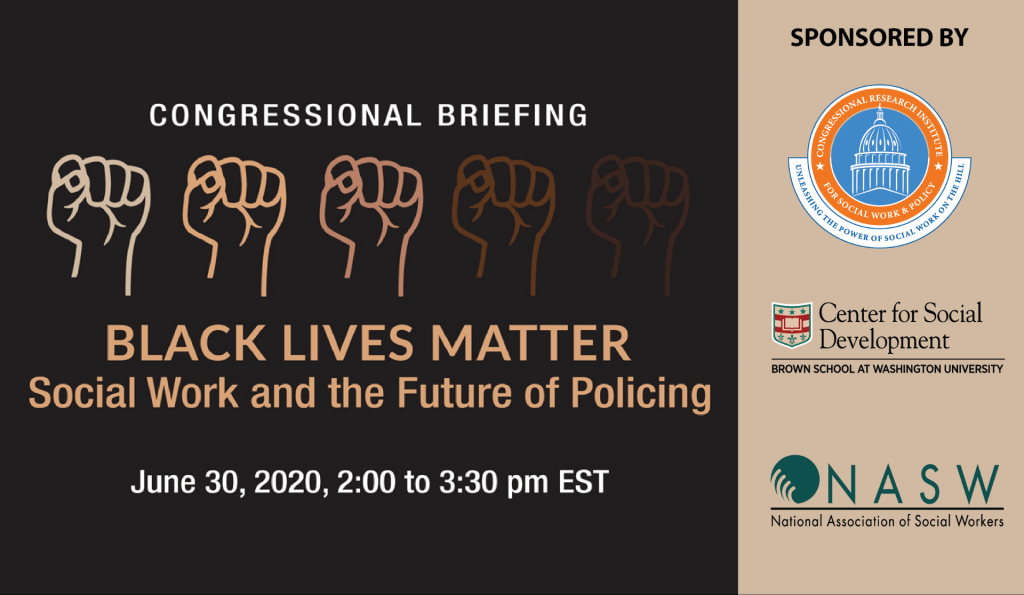Date: June 30, 2020, 2:00 to 3:30 pm EST
Location: Virtual Congressional Briefing
Hashtag: #socialwork_policing
A recording of this event is viewable below (click the arrow to start the recording)
and at NASW and CRISP sponsor websites and social media pages.
We welcome questions and comments about the topic at socialwork.policing@gmail.com
Policing in America is racially violent. We have seen this recently in the murder of an unarmed Black man, George Floyd, under the knee of a Minneapolis police officer; in the death of Breonna Taylor, shot eight times in a no-knock raid of her apartment in Louisville, KY; and in the shotgun death of Ahmaud Arbury by vigilantes while Arbury was jogging in Glynn County, GA. Moreover, all of these homicides occurred during the COVID-19 pandemic, which has disproportionately wreaked havoc on communities of color. There is growing awareness that longstanding racism in America is not just morally wrong—it is deadly. People from all racial backgrounds are speaking up; they have peacefully taken to the streets in cities around the globe and in numbers not seen since the 1960s, demanding long overdue reforms.
Calls to “defund the police” have spawned initiatives to rethink and reimagine policing. Social workers have been engaged in efforts to create more equitable and effective systems for public service for years, and stand ready to lead this urgently needed transformation. See Social Work and the Future of Policing: Key Points for Changes in Policy and Practice.
Please join us for this event on June 30 to hear from social work and criminal justice scholars as well as law enforcement about models for transformation.
Briefing Participants
Derrick Jackson 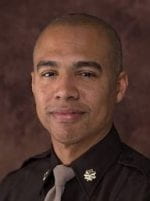 joined the Sheriff’s Office in 2009, where colleagues have come to know him as the Social Worker that became a police officer. Mr. Jackson graduated from Eastern Michigan University with a Bachelor in Social Work and gained his Masters from the University of Michigan. As a social worker and Certified Law Enforcement Officer he has a unique perspective and role in building bridges between law enforcement and the communities they serve. Director Jackson has spent the last 12 years learning, understanding, deconstructing, redesigning, and implementing systems within the Washtenaw County community that have helped reimagine the role of police within community and the role of social workers within law enforcement. Where some may see social work and law enforcement on opposite ends of the spectrum, Director Jackson redefines the spectrum and uses social work and law enforcement to enhance the impact of both.
joined the Sheriff’s Office in 2009, where colleagues have come to know him as the Social Worker that became a police officer. Mr. Jackson graduated from Eastern Michigan University with a Bachelor in Social Work and gained his Masters from the University of Michigan. As a social worker and Certified Law Enforcement Officer he has a unique perspective and role in building bridges between law enforcement and the communities they serve. Director Jackson has spent the last 12 years learning, understanding, deconstructing, redesigning, and implementing systems within the Washtenaw County community that have helped reimagine the role of police within community and the role of social workers within law enforcement. Where some may see social work and law enforcement on opposite ends of the spectrum, Director Jackson redefines the spectrum and uses social work and law enforcement to enhance the impact of both.
George T. Patterson is Associate Professor in the Silberman School of Social Work at Hunter College, City University of New York. A certified police instructor and police social worker, Dr. Patterson has taught criminal justice courses to social work students and trained police officers and recruits. Dr. Patterson has written extensively on the stress of police work, and coping among police officers and recruits. Dr. Patterson has served in the NYC Police Department and Westchester County Police Academy as a visiting professor and curriculum advisor. He also has served in the Rochester NY Police Department as a counseling specialist. Dr. Patterson recently served as guest editor for a policing journal to commemorate 100 years since police social work was first conceptualized. His notable publications include Police Social Work published in the Encyclopedia of Social Work. Dr. Patterson’s proposal for a forthcoming book titled Police Social Work is presently in the review process. His testimony is included in the May 2015 Final Report of the Task Force on 21st Century Policing established by President Barack Obama, and his research results are included in An Evidence-Assessment of the Recommendations of the President’s Task Force on 21st Century Policing.
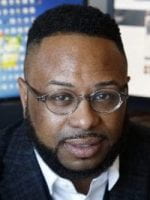 Associate Professor Desmond U. Patton uses qualitative and computational data collection methods to examine youth, social media, and gang violence. He explores how and why violence, grief, and identity are expressed on social media; and the real-world impacts these expressions have on the well-being for low-income youth of color. He studies the ways in which gang-involved youth conceptualize threats on social media, and the extent to which social media shapes and facilitates youth and gang violence. Dr. Patton is the founding director of SAFElab, a member of the Data Science Institute, and a faculty affiliate of the Social Intervention Group (SIG). He holds a courtesy appointment in the department of Sociology. He is the recipient of the 2018 Deborah K. Padgett Early Career Achievement Award from the Society for Social Work Research (SSWR) and was named a 2017-2018 fellow at Harvard’s Berkman Klein Center for Internet and Society. In partnership with the Data Science Institute, he is developing an online tool for detecting aggression in social media posts.
Associate Professor Desmond U. Patton uses qualitative and computational data collection methods to examine youth, social media, and gang violence. He explores how and why violence, grief, and identity are expressed on social media; and the real-world impacts these expressions have on the well-being for low-income youth of color. He studies the ways in which gang-involved youth conceptualize threats on social media, and the extent to which social media shapes and facilitates youth and gang violence. Dr. Patton is the founding director of SAFElab, a member of the Data Science Institute, and a faculty affiliate of the Social Intervention Group (SIG). He holds a courtesy appointment in the department of Sociology. He is the recipient of the 2018 Deborah K. Padgett Early Career Achievement Award from the Society for Social Work Research (SSWR) and was named a 2017-2018 fellow at Harvard’s Berkman Klein Center for Internet and Society. In partnership with the Data Science Institute, he is developing an online tool for detecting aggression in social media posts.
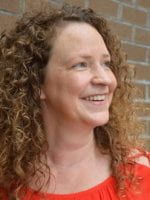 Associate Professor Carrie Pettus-Davis is one of social work’s leading experts in criminal justice and decarceration. She joined The Florida State University in summer 2018 to found and lead the Institute for Justice Research and Development, a premier trans-sector research center focused on criminal justice system innovations. Dr. Pettus-Davis is co-founder and director of the Smart Decarceration Initiative and co-leads the Promote Smart Decarceration grand challenge network, one of the 12 grand challenges identified by the Grand Challenges for Social Work initiative. Dr. Pettus-Davis engages a growing base of policymakers, business leaders, funders, advocates, practitioners, formerly incarcerated individuals, and scholars in criminal justice innovations for debate and testing. She focuses her applied research on smart decarceration of American prisons and jails through policy reform and direct practice intervention development. Pettus-Davis is particularly interested in the ways in which policies and practices can be transformed to reduce race, economic, and behavioral health disproportionality within the criminal justice system.
Associate Professor Carrie Pettus-Davis is one of social work’s leading experts in criminal justice and decarceration. She joined The Florida State University in summer 2018 to found and lead the Institute for Justice Research and Development, a premier trans-sector research center focused on criminal justice system innovations. Dr. Pettus-Davis is co-founder and director of the Smart Decarceration Initiative and co-leads the Promote Smart Decarceration grand challenge network, one of the 12 grand challenges identified by the Grand Challenges for Social Work initiative. Dr. Pettus-Davis engages a growing base of policymakers, business leaders, funders, advocates, practitioners, formerly incarcerated individuals, and scholars in criminal justice innovations for debate and testing. She focuses her applied research on smart decarceration of American prisons and jails through policy reform and direct practice intervention development. Pettus-Davis is particularly interested in the ways in which policies and practices can be transformed to reduce race, economic, and behavioral health disproportionality within the criminal justice system.
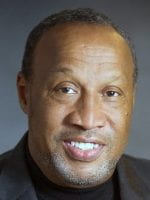 Charles E Lewis Jr., a political social worker, is the founder and director of the Congressional Research Institute for Social Work and Policy (CRISP), a nonprofit organization that works to engage social workers with the U.S. Congress. He is a lecturer at Columbia University School of Social Work, and a member of the Leadership Board of Grand Challenges for Social Work. Dr. Lewis has served as Deputy Chief of Staff and Communications Director for former Congressman Ed Towns and as a member of the faculty of Howard University School of Social Work. He earned his MSW degree in clinical counseling from Clark Atlanta University and PhD in policy, planning and policy analysis from Columbia University.
Charles E Lewis Jr., a political social worker, is the founder and director of the Congressional Research Institute for Social Work and Policy (CRISP), a nonprofit organization that works to engage social workers with the U.S. Congress. He is a lecturer at Columbia University School of Social Work, and a member of the Leadership Board of Grand Challenges for Social Work. Dr. Lewis has served as Deputy Chief of Staff and Communications Director for former Congressman Ed Towns and as a member of the faculty of Howard University School of Social Work. He earned his MSW degree in clinical counseling from Clark Atlanta University and PhD in policy, planning and policy analysis from Columbia University.
Sponsors and Cosponsors
The event is sponsored by the Center for Social Development (CSD) at the Brown School of Social Work at Washington University in St. Louis, the National Association of Social Workers (NASW), and the Congressional Research Institute for Social Work and Policy (CRISP) in conjunction with the offices of Representative Barbara Lee, MSW (D-CA-13), Chair of the Congressional Social Work Caucus; Representative Karen Bass, MSW (D-CA-37), and Senator Chris Van Hollen (D-MD).
Cosponsors include the American Academy of Social Work and Social Welfare; Arizona State University School of Social Work; Bryn Mawr College Social Justice Initiative and Graduate School of Social Work; Boston College School of Social Work; the Council on Social Work Education (CSWE); Colorado State University School of Social Work and College of Health and Human Sciences; Florida State University, College of Social Work, Institute for Justice Research & Development; Grand Challenges for Social Work; Influencing Social Policy (ISP); Loyola University Chicago, School of Social Work; the National Association of County Behavioral Health and Developmental Disability Directors (NACBHDD), the National Association for Rural Mental Health; (NARMH); New York University Silver School of Social Work; the Society for Social Work and Research (SSWR); the University of Missouri School of Social Work; USC Suzanne Dworak-Peck School of Social Work and Center for Homelessness, Housing and Health Equity Research; University of South Florida School of Social Work; University of Texas at Austin Steve Hicks School of Social Work; and Washington University’s Brown School and Clark-Fox Policy Institute.
